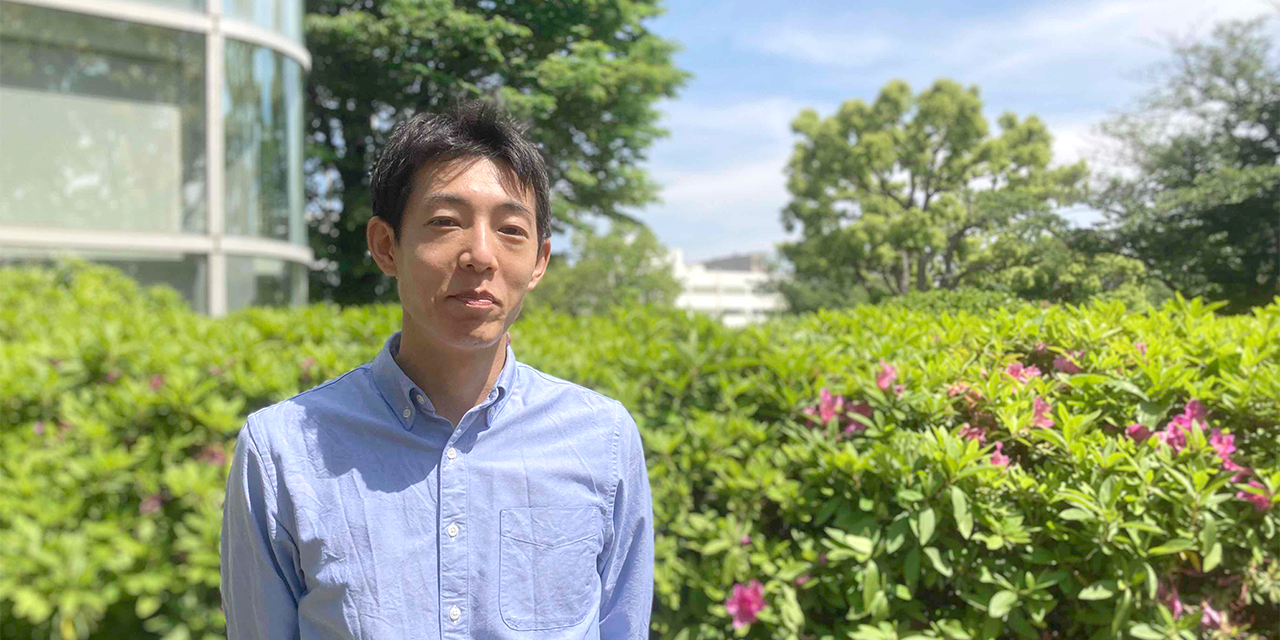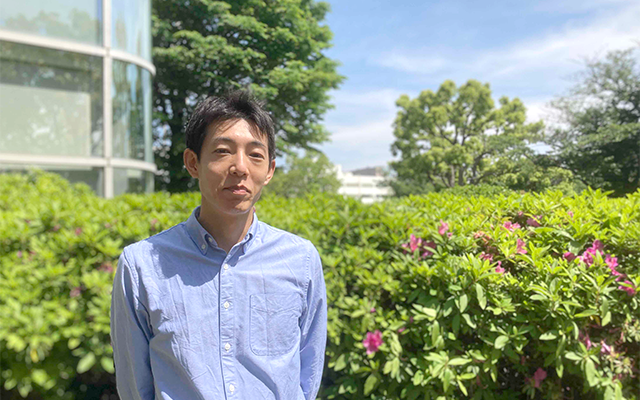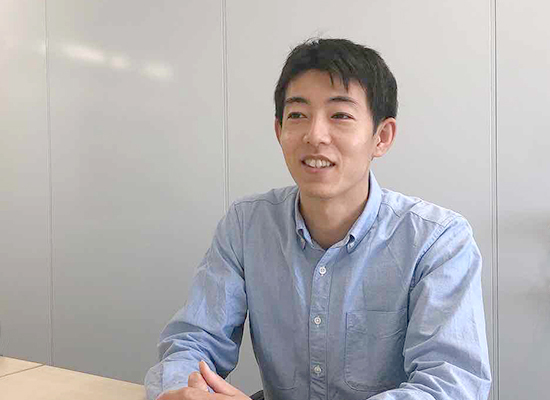I have loved reading books since I was a child.
I remember going to the library every week with my parents, where I would read books about space and history.
The books gave me new insights into things, such as the birth of a planet in the universe or the appearance of living things from Cambrian fossils.
I was excited by everything I read.
My curiosity about the unknown was boundless.
When I picked up a story book about the theory of relativity, the content was a bit of a mystery to me, but I was always happy to be exposed to unfamiliar concepts and my desire to know more became stronger and stronger.
Looking back now, I think I already had a vague longing to explore the unknown.
Even as a junior and senior high school student, my thirst for new knowledge remained unchanged.
I was particularly happy to learn about the laws of physics.
This enthusiasm took me inevitably to a university where I could major in physics, despite the fact that I had had a real struggle with physics exams in high school.
It took me quite a while, for example, to master the application of equations and the procedures for solving problems, and for a long time my test scores were very poor. But I didn’t give up and was eventually able to break through the physics exam without losing faith during that low period.
I even made up my own physics questions to help me study for the exam.
I was a high school student who solved problems as if they were games, and enjoyed learning while playing.
When I became a college student, I got my first laptop computer.
At that time, IT was just starting to catch on, and one day, I saw a book on C programming in a bookstore. I just thought, "I'll give it a try," and got started.
I followed the book's instructions and started flicking commands into the computer.
I was so excited to see the computer start working exactly as instructed.
When I wasn't studying my main physics course, I immersed myself in programming.
I even made a prototype of a basic shooting game.
During those days, I realized that I was good at making things, but in my physics classes, I rarely had to solve any problems on the computer.
Later, after entering graduate school, something happened that completely changed the direction of my life.
I came across a paper whose results could not be reproduced without the use of computer calculations.
For the first time in my life, I was able to solve a physics problem through computer simulation.
At that moment, I realized that I could save a great deal of time by using technology, solving a problem that would have taken years to calculate manually.
That successful experience made me realize that I wanted to use my background in physics to create something that would be useful to society.
After joining Fujitsu, I was assigned to the application development department of the supercomputer, The K computer, and I was engaged in research and development using my knowledge of physics and computers.
Before joining the company, I was prepared for the possibility that I might not be able to do what I wanted to do as a newcomer. In the event, this realization proved to be positive as the environment allowed me to utilize my abilities more than I had imagined.
Surrounded by a great team, I felt really engaged with my daily work.
By my third year, I was working on computer simulations for magnetic field simulators, involving the properties of magnetic materials such as magnets and steel.
I was working to elucidate the behavior of magnetic materials such as magnets and steel by simulating their properties on a computer, something that could not be done experimentally.
At the time, I was involved in analyzing the behavior of steel parts used in electric vehicle motors to reduce energy loss.
As the shape and size of steel parts differ from each other, it is very expensive to test them after they are made.
Therefore, computer simulation was considered to be very useful in saving costs.
Also, in computer simulation, there is an important aspect of parameter adjustment.
Even if the calculations are physically correct, incorrect results will be obtained if the parameters are off the mark.
Parameter adjustment was a persistent process, but my character of never giving up had a positive impact.
My tenacity paid off, along with the support of my team.
Our positive results led to a presentation at an academic conference (*1) at the Institute of Electrical Engineers of Japan, and as a result, we received an award for an outstanding presentation.
After being continuously engaged in research on magnetic field simulators, we eventually reached the commercialization stage to transform magnetic field simulator into a product (*2). At this point, I became involved in sales as well as research.
I participated in sales promotion events and customer visits, doing demonstrations for them. We requested feedback from customers, and then repeated the verification process to see if we could solve their specific problems using product features.
Many of our customers at that time were from manufacturers’ and universities’ research departments. I really felt that I could make use of my research knowledge and experience, talking their research language.
My days with such customers were very fulfilling, enabling me to cross the line of actual research and enjoy the fun of "making things" as we continued our product development through a process of trial and error with our customers.
Every time I achieved a goal I set for myself, I would draw a picture of the next goal I wanted to achieve.
Looking back now, I feel that I have always taken on new challenges.
I am currently in charge of developing algorithms for quantum computers.
By applying my past knowledge of parallel computing processing and physics, I truly hope to contribute to the realization of the quantum computer.
Quantum computing will, I hope, lead to applications in fields such as quantum chemistry, finance, and cryptography, and to the development of new materials and technologies.
For example, in quantum chemistry, the search for new materials and the analysis of chemical reaction pathways will be accelerated.
I believe that it is important to keep moving forward.
If we stop thinking, that's where our research will end.
I think it is important to be continuously aware of problems, even small ones.
My own manufacturing journey is far from over.
My dream is to make things and have people around the world use them.
I will keep fighting until I pass the baton from my generation to the next.



